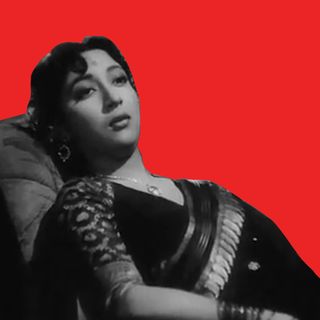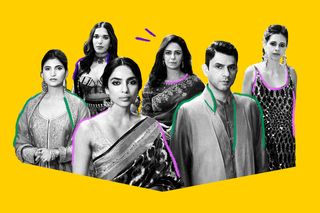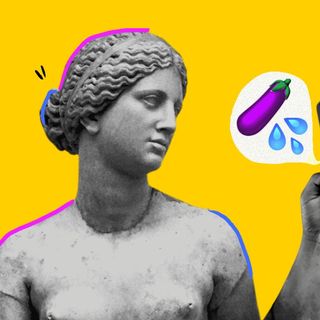
‘Made in Heaven’ Is Not Subtle. And That’s Not a Bad Thing
In a society conditioned with deep-rooted prejudices, there’s little chance of it making any impact without being loud and explicit.

This article contains spoilers for Season 2 of Made in Heaven.
Reviews of the second season of Amazon Prime’s Made in Heaven are replete with criticism of it being overly — and overtly — preachy. That’s an absolutely accurate observation, but here’s the thing: non-subtlety is what it desperately needed to drive home its messaging. In a society conditioned with the deep-rooted prejudices that the show addressed, there was little chance of it making any impactful change without being on the nose; it’s not always a bad thing, and this case, especially not.
In one of the episodes, the principal of a school advises a teacher — who’s publicly in a lesbian partnership, and gearing up for a commitment ceremony with her partner — to do whatever she wants in her private life, as long as she she isn’t rubbing in her sexuality in people’s faces; an ask rarely made of heterosexual couples. The principal’s argument: the students’ parents aren’t too happy about it. In yet another episode, a Dalit bride is repeatedly told to keep her activism in check everytime she protests the blatant casteism from the (seemingly) Brahmin groom’s family. Neither of the brides give in, and rightfully so: why must marginalized voices continue to be sacrificed at the altar of politeness while they’re in the process of being explicitly oppressed? The messaging in the episodes, and largely in the overall season, is clear: fixing the boat might, sometimes, look like rocking it; instead of blaming the ones fixing it, we need to direct our derision at those who continue to propagate values that generate the need for fixing.
From colorism to casteism to classism to transphobia to homophobia to abuse — both by parents and by intimate partners — a multitude of social biases are subjects the show attempts to tackle, and more often than not, it’s the sincerity that stands out. For a show revolving around marriages, Made in Heaven‘s second season continues to use weddings as a lens to explore prejudice. And ahead of the wedding season, the reminder that marriage is an inherently unfeminist institution, certainly bears repeating.
Where Made in Heaven falters, perhaps, is in the neat happy endings given to almost all of the couples — diluting its steamy, passionate affair with reality. But there are a few noteworthy exceptions. A bride struggling to see beauty in her reflection — as a result of being reminded, over and over again, that she’s too dark — is beginning to accept she’s beautiful because the groom thinks she’s the “perfect shade of caramel.” This new-found — yet trembling — confidence allows her to stand up against the glutathione injections she felt pressured to take earlier. Yet, when she sits in front of the mirror again, years of self-doubt resurrect to inform her gaze, prompting her to reach for a tube of fairness cream once again. The Dalit bride, too — constantly berated for being too outspoken — wonders on the day of her wedding if she went “too far” in her fight for equality. Indeed, internalized biases — even towards our own selves — aren’t eroded in a day.
Related on The Swaddle:
In one other episode, a supermodel and actor is trapped in a physically abusive relationship with her fiancé. She is aware of the abuse, but isn’t able to break away from the emotional cycle that ties her to the man. Like many, many other women in her situation, perhaps, she feels she’s the one who prompts the abuse, and must prove she’s worthy of his love by helping him be a better person while changing herself, simultaneously, to be deserving of his “love.” It’s a tale as old — and, unfortunately, as contemporary — as time. She goes on to marry him in a beautiful ceremony enveloped in a pall of gloom one associates with funerals. In fact, one of the funerals depicted in the show was, actually, much lighter emotionally. In not giving the bride a happy ending at the end of the episode, though, the show forces us to confront the reality that survivors of abuse seemingly choose for themselves.
Another narrative that the show highlights beautifully is the solidarity that shared experiences of marginalization can bring forth. When one woman asks another, “Have you ever been f**ked over?,” and she replies, “Yes, brutally,” we’re forced to reckon with the fact that our identities — no matter how far they may be from one another socio-economically — are always going to eclipse our hard work, achievements, humanity, and even our acts of kindness.
Tara (played by Sobhita Dhulipala) might be an accomplished businesswoman and a support system for her former mother-in-law; yet, she’s always going to be an outsider because of her humble origins. Jazz (played by one of the best actors in the cast, Shivani Raghuvanshi) may stroll down the picturesque streets of France in pretty clothes, speaking perfect English, and organizing the poshest of weddings; but Kabir, the rich, Delhi “f**kboy” — as film critic Sucharita Tyagi describes the character played by Shashank Arora — is still not going to make her his official girlfriend because her social background isn’t nearly as sophisticated as his. Karan (played by Arjun Mathur) might be a loving son grieving his relationship with his dying mother; she, however, can never see him for anything beyond his sexuality. Faiza (played by Kalki Koechlin) might do her best to be a good partner, but she’s still going to remain the home-wrecking, “other woman” — a fact she appears to have internalized, too. Meher (brought to life by Trinetra Haldar Gummaraju) might be a smart, gorgeous, independent woman; people, however, cannot get past the fact that she was born in a body different from the one they see now.
Related on The Swaddle:
‘Decoupled’ Tried to Satirize ‘Toxic’ Societal Norms, Ended Up Normalizing Them
Interestingly, it’s Meher’s experience of marginalization that allows her to empathize with the Dalit bride in a way no other cast member does. This echoes the way Bulbul (played by Mona Singh) empathizes with the supermodel in an abusive relationship — doing her best to subtly suggest to her that she doesn’t deserve the abuse, despite being advised against interfering by Tara and Karan. Incidentally, the subtlety doesn’t have nearly the same impact as Bulbul speaking up to alert the bride’s parents that their would-be son-in-law has a history of abuse.
Yes, the show is preachy. But just like the Brahmin groom who thought his fiancée was unnecessarily rocking the boat — because his privilege had blinded him to the degrees of oppressive microaggressions she was battling in front of his very eyes — it’s probably the already-converted who are more ruffled by the show’s preachiness. For those tirelessly fighting the same exhausting battles as many of the brides in the show, the high-intensity, big-budget emotional drama that Made in Heaven delivers, not only brings the promise of, at least, a few converts, if not too many, but also grants moments of unparalleled emotional catharsis.
Among its broader themes, yet another narrative stands out — families can be bullies, too, and we don’t owe it to them to be forgiving just because we’re tied by blood and marital bonds, no matter how much the world attempts to guilt-trip us for standing up for ourselves and drawing boundaries. This is indeed a much-needed divergence from movies like Baghban and Kabhi Khushi Kabhie Gham that glorify parents simply because they procreated. Meanwhile, unlike Karan’s mother who refused to respect his individuality, parents — like the mother of a lesbian bride, another of a child depressed by his parents’ separation, and Bulbul — can expose their vulnerabilities to their offsprings, parenting them by allowing them to confront the realities of the prejudiced world they were born into, instead of trying to shield them from it. Yet, the show does allow parents to live for themselves, too — perhaps, the only contribution of an episode, other than flipping the gendered notion of “gold-diggers,” that seemed more focused on featuring certain cast members of Netflix’s Fabulous Lives of Bollywood Lives, instead of matching up to the compelling narrative of the rest of the series.
What is missing in this scathing commentary, though, is the story of how the almost unconditional camaraderie between the show’s leads, which forms the very soul of Made in Heaven, came to be. While we’re yet to find out whether Made in Heaven will be renewed for another season, if it does, that’ll certainly be an interesting story to unpack.
Devrupa Rakshit is an Associate Editor at The Swaddle. She is a lawyer by education, a poet by accident, a painter by shaukh, and autistic by birth. You can find her on Instagram @devruparakshit.
Related


Why Sexual Openers Are a Major Turn‑Off for Women on Dating Apps, According to Science
